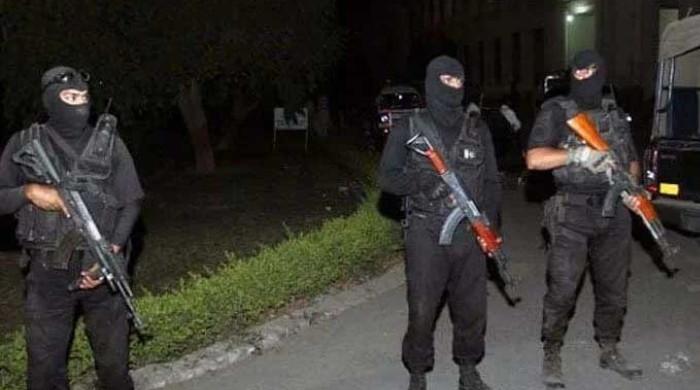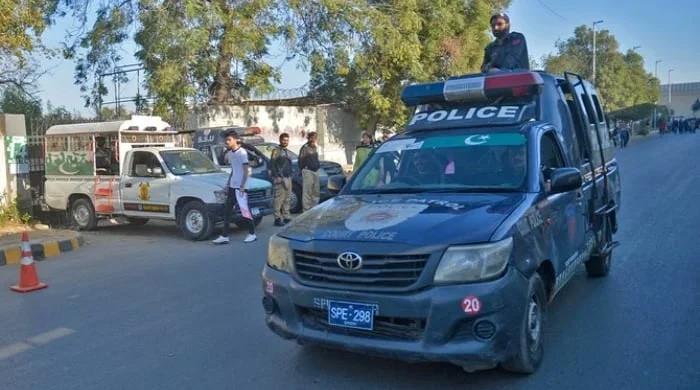CM Balochistan dismisses The Guardian's news story on Taftan coronavirus camp as fake
CM Balochistan dismisses The Guardian's news story on Taftan coronavirus quarantine camp as 'fake story'
March 21, 2020

Chief Minister Balochistan Jam Kamal said Saturday that the British publication, The Guardian, had published a fake story about the quarantine camp at Taftan, saying that the photos were actually from Quetta.
Taking to Twitter, Kamal wrote, "Guardian has published a totally fake story on Taftan. The reporters didn’t even bother to visit Taftan."
"The Picture are of Quetta[...]as there are no pine trees in Taftan," he said, adding: "This is what fake, directed pics, manipulated and what to show and what not to show news does."
The Guardian had ran a news story on the Taftan camp, stating that the conditions at the camp were not fit for coronavirus patients to be quarantined there.
"In this dusty camp on Pakistan’s border with Iran, which at one stage held more than 6,000 people, the stench of sweat, rubbish and human excrement hung in the air. There was no real housing, just five people to a ragged tent, and no bathrooms, towels or blankets," reads a paragraph from the story.
Coronavirus cases rise to 103 in Balochistan
The number of confirmed coronavirus cases in Balochistan has risen to 103, as health workers and officials in the province struggle to deal with the deadly outbreak.
Read more: Shopping malls, picnic spots to close across Punjab for two days
In Quetta alone, as many as 56 people tested positive in a single day on March 19. The patients were first kept in isolation at the Taftan border, between Balochistan and Iran, and then shifted to the quarantine center in Mian Ghundi in southwest Quetta.
Nearly all those who have been infected recently arrived from Iran, via the border crossing. Those who were residents of Balochistan have been kept back, while the others were sent off to their hometowns in other provinces.
Directing pilgrims back to their cities has invited sharp criticism from other provinces, where officials insist that the men, women and children should have been tested and screened properly for the virus at the border.
But the reality is that dealing with a large influx of pilgrims overwhelmed the government of the poorest province in Pakistan, whose healthcare system, due to years of neglect, has remained under-resourced and understaffed.
Since last month, when the pandemic was first reported in Iran, 6,810 Pakistani pilgrims crossed the Pak-Iran border. As per the data of Balochistan’s health department, these people, after being kept at the border camps briefly, were sent to their hometowns on February 28.











